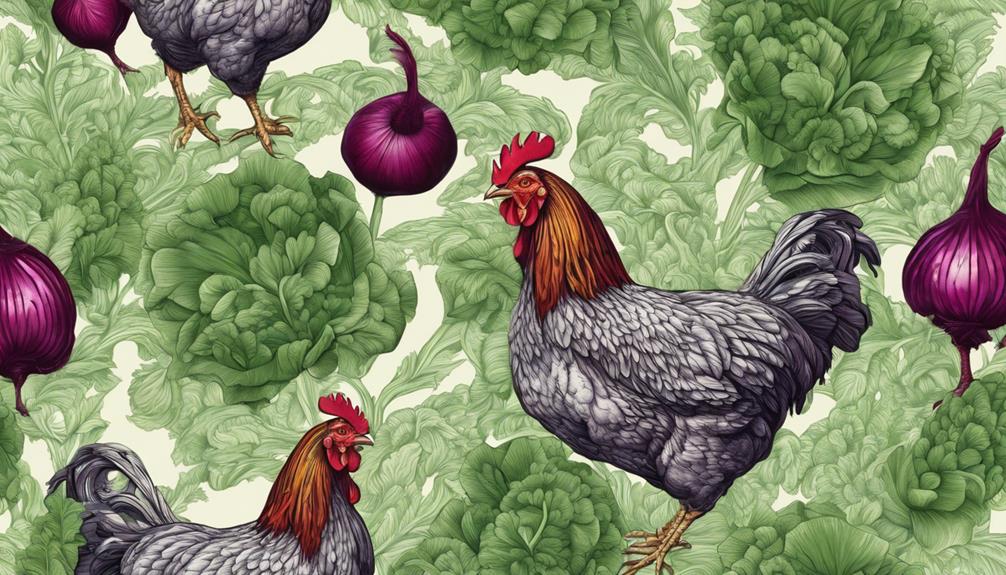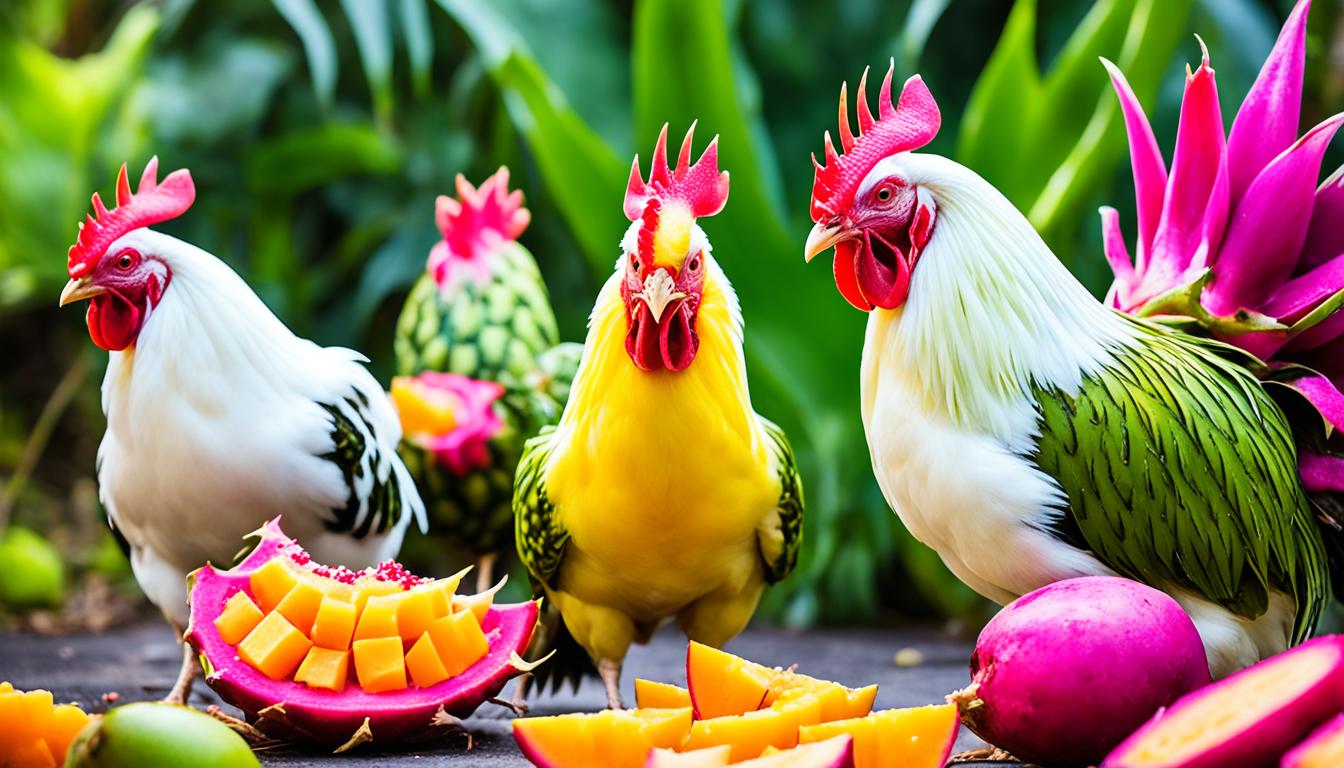Here’s an easy method to sprout lentils for the benefit of your chickens. Initially, select whole, fresh, and organic lentils for the best cleanliness and nutrients. After that, carefully rinse them with cool water to prepare for sprouting. Subsequently, soak the lentils for 8-12 hours for complete germination. Be sure to regularly drain any excess water to avoid mold. Sprout by soaking and draining twice a day using a mason jar. Maintain proper moisture levels during the entire process.
Once sprouted, ease your chickens into the new food and observe their health. These steps provide a good foundation for healthy lentil sprouts for your feathered friends.
Key Takeaways
- Select whole, organic lentils for sprouting.
- Soak lentils for 8-12 hours to activate enzymes.
- Rinse daily and maintain proper moisture levels.
- Monitor growth daily for healthy root and shoot development.
- Feed chickens 1 tbsp of sprouts every few days for protein.
Select the Right Lentils
When selecting lentils for sprouting, opt for whole lentils over split ones to ensure successful germination as split lentils lack the ability to sprout. Whole lentils, especially organic ones, are preferable as they haven't been exposed to chemicals or pesticides that could hinder the sprouting process. It's essential to choose fresh lentils that haven't been stored for too long, as overly dry lentils may have reduced viability for sprouting. Additionally, ensuring that the lentils are clean and free from any debris or foreign particles before soaking is crucial for successful sprouting.
Whole lentils contain all the necessary components required for germination, making them the ideal choice for sprouting. Their intact nature preserves the integrity of the seed and provides the best conditions for the sprouting process to occur effectively. By selecting organic, whole lentils that are fresh and clean, you set the stage for a successful sprouting experience that will benefit your chickens.
Rinse the Lentils

To ensure the lentils are clean and ready for the sprouting process, thorough rinsing is crucial to remove dirt, debris, and potential contaminants. Rinsing not only eliminates impurities but also hydrates the lentils, priming them for the soaking stage. It's imperative to rinse the lentils under cool, running water to achieve optimal cleanliness. By cleansing the lentils thoroughly, we set the stage for successful sprouting, creating a pristine environment for germination.
When rinsing the lentils, the flow of water helps carry away any unwanted particles clinging to the lentils' surface. The gentle agitation from the water stream aids in dislodging dirt and dust that may have accumulated during storage. Additionally, this process helps to kickstart the lentils' absorption of moisture, a vital step for their transition into the soaking phase.
Proper rinsing is a foundational step in the sprouting journey, ensuring that the lentils are free from impurities and adequately prepared for the subsequent stages of sprouting.
Soak the Lentils
How long should lentils be soaked in water to initiate the sprouting process?
Lentils should be soaked for 8-12 hours to kickstart the germination process effectively.
Here are three essential points to consider during the soaking phase for sprouting lentils:
- Duration: The recommended soaking time for lentils is 8-12 hours. This period allows the seeds to absorb water, which softens them and prepares them for germination.
- Submersion: Ensure that the lentils are fully submerged in water during the soaking process. This ensures even water absorption and aids in softening the seed coat for germination.
- Germination Activation: Soaking is crucial as it allows water to penetrate the seed coat, triggering the activation of enzymes necessary for the sprouting process. Proper soaking sets the stage for successful germination by providing the optimal conditions for the seeds to begin sprouting.
Drain and Rinse

After soaking the lentils for 8-12 hours, the next step is to thoroughly drain and rinse them to facilitate the sprouting process efficiently. Draining the soaked lentils is crucial to remove excess water, which can lead to mold growth and spoilage. Proper drainage ensures that there's no stagnant water, reducing the risk of spoilage during sprouting. It's essential to maintain a balance by rinsing the lentils daily to keep them moist but not waterlogged. This practice promotes optimal conditions for sprouting without creating an environment for mold or bacteria to thrive. Adequate airflow around the lentils is also necessary to prevent the development of unwanted microorganisms.
Consistent rinsing and draining play a vital role in the successful sprouting of lentils for chickens. By following these steps diligently, you can create an environment that supports healthy sprout growth, providing your chickens with a nutritious treat. Remember, proper drainage and regular rinsing are key factors in the sprouting process.
Sprout the Lentils

To sprout lentils successfully, we must start by soaking them in water for 8-12 hours to kickstart the germination process.
After soaking, it's crucial to rinse and drain the lentils twice daily to maintain moisture levels optimal for sprouting.
Ensuring proper drainage and adequate space for growth will support healthy sprout development.
Soaking Lentils in Water
Upon soaking lentils in water for 8-12 hours, the sprouting process is initiated, softening the lentils and preparing them for optimal growth.
Here's a breakdown of the soaking process:
- Submersion: Ensure lentils are fully covered in water during soaking to facilitate softening and enzymatic activity.
- Enzyme Inhibitors: Soaking helps break down enzyme inhibitors in lentils, aiding in digestion and nutrient absorption.
- Duration: The soaking phase typically lasts 1-2 days before sprouting begins.
Rinse Lentils Daily
During the sprouting process, daily rinsing of the lentils is essential to maintain proper moisture levels and promote optimal growth. Rinsing helps remove debris, prevent mold growth, and wash away anti-nutrients present in the lentils. This process ensures the lentils stay clean, free from contaminants, and promotes healthy sprouting. By rinsing the lentils daily, you support the optimal nutrient absorption and growth of sprouts for your chickens. Utilizing a mason jar for sprouting provides a convenient vessel for daily rinsing. Sprouted lentils are a nutritional powerhouse, offering extra protein and essential nutrients beneficial for your chickens' health.
| Benefits of Daily Rinsing | Description |
|---|---|
| Maintains Moisture Levels | Ensures proper hydration for sprouting lentils |
| Prevents Mold Growth | Rinsing removes excess moisture and prevents mold formation |
| Washes Away Anti-nutrients | Helps eliminate compounds that can hinder nutrient absorption in the sprouting process |
Ensure Proper Drainage
Proper drainage plays a critical role in the successful sprouting of lentils, preventing mold growth and ensuring optimal moisture levels for healthy growth.
To ensure proper drainage and avoid stagnant moisture, follow these essential steps:
- Drain the Water: After rinsing the lentils, make sure to drain out all excess water thoroughly.
- Use Proper Drainage: Choose a sprouting container with adequate drainage holes to allow any leftover water to escape.
- Prevent Mold Growth: Good drainage helps in preventing mold growth by maintaining the right moisture levels for sprouting.
Monitor Sprouting Progress

As we observe the sprouting progress of lentils, it's crucial to note that optimal length for feeding to chickens is typically achieved within 3-5 days.
Daily checks are necessary to ensure proper growth and development of the sprouts.
Sampling the sprouts periodically allows us to evaluate their taste and texture as they advance in the sprouting process.
Sprouting Time
To monitor the progress of lentil sprouting, observe the growth of tiny roots and shoots. Lentils typically take 3-5 days to sprout fully. Here are key points to consider during the sprouting time:
- Daily Monitoring: Check the lentils each day to track the development of roots and shoots.
- Rinsing Schedule: Regularly rinse the lentils to keep them moist and prevent mold growth.
- Airflow and Space: Ensure the lentils have proper airflow and room to expand, allowing for healthy sprouting.
Checking Moisture Levels
Monitoring the moisture levels of sprouting lentils involves ensuring they maintain the right balance of moisture without becoming waterlogged. Proper moisture is essential for healthy sprouting and to prevent issues like mold growth. Excess moisture can lead to mold, while dry lentils can hinder the sprouting process. Consistent moisture levels are crucial for the lentils to germinate and grow into nutritious sprouts. Daily monitoring during the sprouting process is necessary for successful sprouting.
| Moisture Level | Description | Action Needed |
|---|---|---|
| Too Wet | Lentils appear waterlogged | Reduce watering |
| Proper Moisture | Lentils are moist but not soggy | Maintain current level |
| Too Dry | Lentils look dry and show little to no growth | Increase watering |
| Consistent Moisture | Lentils show steady growth and are vibrant | Continue monitoring |
Feed Your Chickens

Feeding chickens a diet rich in lentil sprouts provides them with essential protein and nutrients for optimal health and growth. When incorporating lentil sprouts into your chickens' diet, it's important to make sure you follow proper feeding guidelines to ensure their well-being. Here are some key points to consider:
- Start Slow: Begin by offering 1 tablespoon of sprouted lentils per bird and monitor their response. Increase the amount gradually based on their consumption and overall health indicators.
- Regular Intake: Provide lentil sprouts to your chickens every couple of days to maintain a consistent source of protein and nutrients in their diet.
- Variety is Key: While lentil sprouts are beneficial, make sure to use them in conjunction with a balanced diet that includes other feed options to meet all their nutritional needs.
Frequently Asked Questions
How Do You Sprout Lentils for Chicken?
When sprouting lentils for chickens, we soak dry lentils in water for 8-12 hours to kickstart the process. To keep the sprouts moist but not waterlogged, we rinse and drain them twice daily.
Once the sprouts reach the desired length in 3-4 days, they're ready for the chickens. Remember to store sprouted lentils in the fridge for up to a week for freshness.
Avoid feeding raw lentils to chickens; sprouting or cooking is necessary for safe consumption.
How Do You Sprout Lentils Quickly?
To sprout lentils quickly, soak them in water for 8-12 hours to jumpstart germination. Rinse and drain twice daily to maintain moisture levels. Provide a warm environment and proper ventilation to speed up the sprouting process.
Within 3-5 days, under optimal conditions, you should see sprouts forming. Remember to keep the lentils moist but not waterlogged for successful and swift sprouting results.
How to Grow Lentils Fast?
We've mastered growing lentils fast by soaking them for 8-12 hours to kickstart sprouting. Daily rinsing and draining prevent mold, ensuring healthy growth.
When sprouts reach desired length, they're ready for feeding. Storing washed sprouts in the fridge maintains freshness for 5-7 days.
Our method guarantees quick, fresh greens for chickens.
Why Aren't My Lentils Sprouting?
We've found that several factors can hinder lentil sprouting, such as old age, improper storage, extreme temperatures, hard water, chlorine, chemical treatments, pesticides, over-soaking, and inadequate drainage.
These elements can prevent the germination process from occurring effectively.
Understanding and addressing these issues can help improve the sprouting success of lentils.
Can Sprouted Lentils Be Fed to Parakeets as Well?
Yes, you can consider safely feeding grapes to parakeets. When it comes to other foods, like sprouted lentils, parakeets can enjoy them as well. Simply ensure that the lentils are thoroughly cleaned and properly prepared before offering them to your feathered friend.
Conclusion
In conclusion, sprouting lentils for chickens is a simple and nutritious way to provide them with a healthy treat.
Did you know that sprouted lentils can contain up to 30% more protein than unsprouted lentils?
By following these 7 easy steps, you can ensure your chickens are getting the best possible nutrition from their treats.
Happy sprouting!










